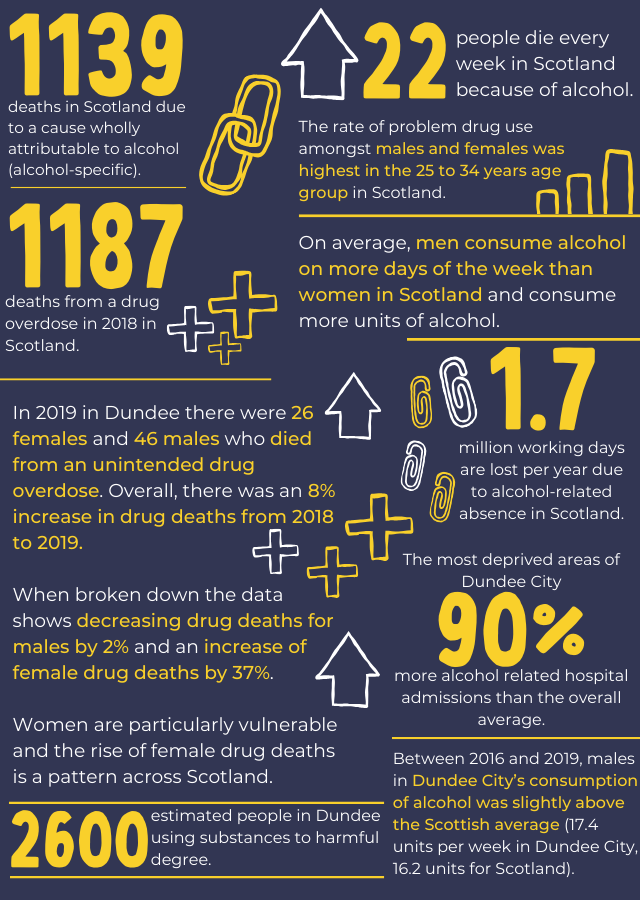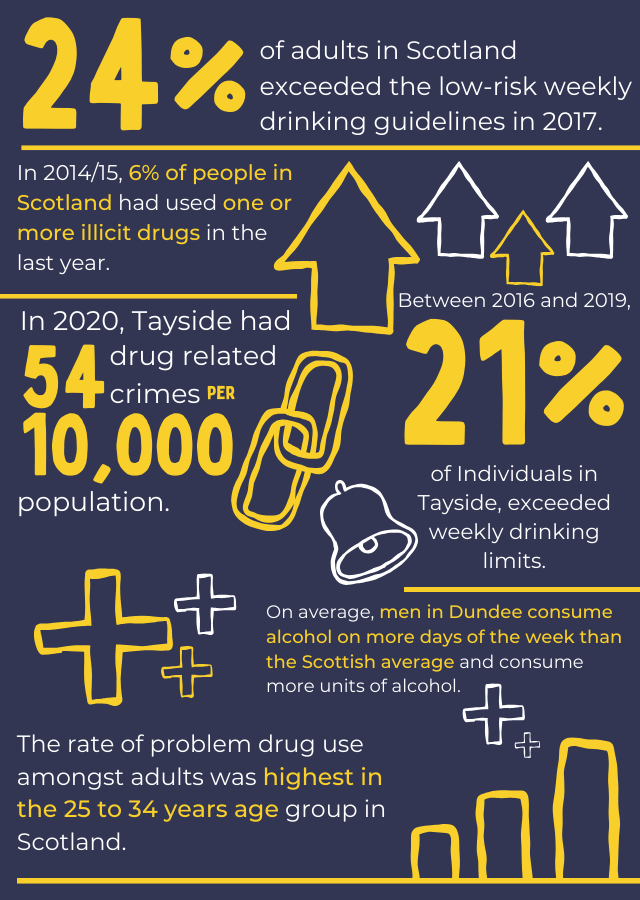
This is a briefing on what works for adults in alcohol and drug prevention. It relates to interventions for individuals between the ages of 25 and 50. However, it is important to note that there is a large crossover of what works with:
- The children and young people evidence briefing at the lower end of the 25 – 50 age range.
- The older adults evidence briefing at the upper end of the 25 – 50 age range. In particular, individuals below 50 years of age may be presenting with alcohol and drug issues that may make the briefing on what works for older adults more appropriate.
There is evidence to suggest that sex and gender may affect how adults respond to alcohol and drugs, the risk and protective factors for reducing the likelihood of use, and the barriers to accessing support with this. Some studies have cited hormonal differences between the biological sexes as an important factor in use, recovery and relapse, with implications for what may work in intervention and treatment, particularly when pharmacological interventions are being considered. Other differences are socio-cultural, and are thus more affected by societal structures. The complexity of how gender and sex can affect alcohol and drug use and responses to treatment, as well as the overlap between gender and other risk factors (see At-Risk Briefing) make it difficult to determine how best to tailor alcohol and drug prevention programmes. However, it is clear that sex and gender should be taken into account in design and delivery of services.
Context and Need to Know
- Good Practice
- NHS Health Scotland resources on delivery of ABIs
- Oldham Borough Council pilots
- Brighton and Hove City Council ‘named workers’
- Scotland’s Take-Home Naloxone Programme
- Newcastle City Council roll-out of Naloxone
- Healthy Working Lives
- Tayside Council on Alcohol ‘Women’s Only Mentoring’
- Potential Stakeholders
- Adult alcohol and drug services
- Allied health professionals
- Employers
- Scottish Prisons Service
- Recovery groups
- Local authority staff
- Social care staff
- Mental health professionals
- Community learning and development staff
- Police Scotland
- Specialist women support services
- Full Evidence Briefing
To view the full Evidence Briefing for Adults please click HERE.

